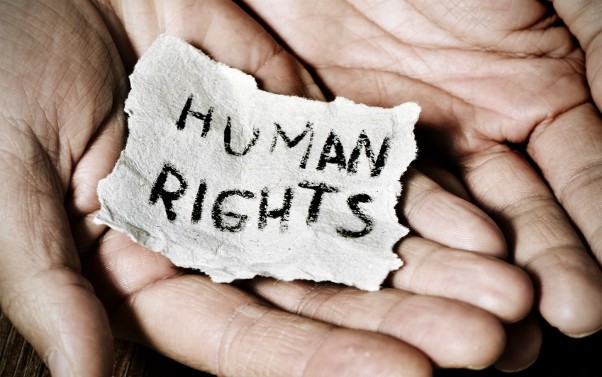
Older people are being unlawfully detained in mental health hospitals “in very many cases” because of poor practice around the Deprivation of Liberty Safeguards (DoLS), the Care Quality Commission has warned.
The CQC said that, in some older people’s wards, staff were applying for a DoLS authorisation after the expiry of a patient’s stay for admission under section 2 of the Mental Health Act 1983, in cases where the person needed ongoing hospital care.
“In very many cases, this is now effectively arranging for unauthorised detention to start immediately or, at best, in the 14 days after a renewed urgent DoLS authorisation expires and a longer-term authorisation has not yet been granted,” said the regulator’s 2021-22 report on its monitoring of the MHA, published today.
The CQC said a lack of appropriate training meant staff struggled to understand people’s rights under the MHA and DoLS, leaving people at risk of being unlawfully deprived of their liberty.
For example, there was a “misconception” that if people were happy to be on a ward, they could be classed as informal patients without staff considering whether they had capacity to consent. A DoLS authorisation is required in cases where a person with a mental disorder is not objecting to admission but lacks capacity to consent.
DoLS cases at record levels
The CQC’s warning comes with latest figures showing DoLS case numbers at record levels, leading to widespread unauthorised deprivations of liberty. In 2021-22, just 20% of applications for standard DoLS authorisations were completed within the statutory 21-day timeframe, down from 24% the previous year, while the average time councils took to process applications rose from 148 to 153 days.
The government has legislated to replace DoLS with a new system, the Liberty Protection Safeguards, but is yet to set out a timetable for implementation, with the Department of Health and Social Care scotching a recent that it would come into force in October 2023.
Related articles
More generally, the CQC report warned that staff shortages and a lack of capacity on mental health wards, combined with inadequate community provision, were undermining patient safety and the quality of care and leading, in some cases, to “closed cultures”.
The regulator said there was a “systemic” shortage of qualified mental health nurses, leaving patients unable to build the therapeutic relationships with staff that they needed and reducing their access to one-to-one nursing. A lack of occupational therapists, meanwhile, was reducing access to therapeutic activities on wards, increasing risks to safety.
Lack of activities ‘increasing risk of violence’
“Patients told us that a lack of activities increased the risk of violence on the wards because people were bored,” said the report. “Staff shortages, and lack of appropriately trained staff,
have also led to challenges around the ability of staff to respond to these incidents.”
A lack of practitioners was also leading to restrictive practices, such as people having limited access to gardens, observation checks being missed, creating risks to safety, and staff being asked to carry out tasks they were not trained to do.
The CQC also found that many wards were operating at or above capacity due to a lack of beds, meaning some struggled to accommodate the patients they had and leading to delays in admission.
“This can leave patients in crisis in vulnerable and unsafe positions, places community services under additional strain, and leads to people being cared for in unsuitable environments, such as health-based places of safety, for prolonged periods,” the report said.
There is a 24-hour limit on people being placed in health-based places of safety after being detained from home or a public place, under sections 135 or 136 of the MHA, respectively, due to a mental health crisis.
Place of safety time limits ‘regularly breached’
However, the CQC said this limit – which can be extended by 12 hours if necessary to complete an assessment – was being “regularly breached because of delays in accessing an inpatient bed”.
This was also resulting in other people being detained under sections 135 or 136 being taken to emergency departments because health-based places of safety were fully occupied, as demonstrated by recent Home Office data.
Capacity issues were also afflicting care for children and young people, with a 32% rise, from 197 to 260, in the number admitted to adult wards from 2020-21 to 2021-22. Section 131A of the MHA requires hospital managers to ensure that under-18s admitted under the act are cared for in an environment suitable for their age, which the act’s code of practice states prohibits admission to adult wards other than in exceptional circumstances.
The CQC found that in 70% of cases, the child or young person was admitted because there was no alternative inpatient or outreach service for children available.
Concerns over reduced social work input
The regulator also found a lack of community and social care provision was driving discharge delays, raising concerns that social work input – which it said should be included throughout a patient’s pathway – had reduced on inpatient services in 2021-22. It cited the example of a forensic low secure ward it visited in 2021, where a restructuring of community services had resulted in social workers no longer being allocated to wards, meaning their services had to be accessed through a referral, creating potential delays.
As it did in last year’s MHA report, the CQC also raised concerns about disputes between local authorities about who was responsible for funding a person’s aftercare, under section 117 of the MHA, when people were placed out of area.
“This year, we have seen many examples of delays due to commissioning and local authority disputes over who should be responsible for providing or paying for aftercare, together with problems with social care funding and placements,” the report said. This issue is currently subject to a legal challenge by Worcestershire council against the government, which will be heard by the Supreme Court.
Inequalities ‘due to experiences of racism, not just legislation’
The report also raised the issue of the longstanding racial inequalities in the use of the MHA, with black or black British people four and a half times as likely to be detained in hospital, and 11 times as likely to be placed under a community treatment order, as white people in 2021-22. It said the issue was exacerbated for people from black and minority groups living in deprived areas.
The CQC said tackling this required “urgent action”. But while it acknowledged the government’s intention to tackle inequalities through its reform of the Mental Health Act – including through raising the threshold for someone to be detained in hospital or subject to a CTO – the regulator said it was concerned about how this would be tackled given the many underlying causes.
In his foreword to the report, the CQC’s director of mental health, Chris Dzikiti said: “We know from this and numerous other reports that the inequality faced by some people from ethnic minority groups is not just a result of current legislation, but is inexorably linked with wider personal experiences of racism, access to opportunities and socioeconomic circumstances. We want to work with stakeholders, including people who have experienced mental health services and their carers and families, to build on this research and drive real change.”
‘Urgent need’ for mental health plan and more staff
In response to the report, Sean Duggan, chief executive of the mental health network at the NHS Confederation, said: “While the report shows that mental health leaders and staff are doing all they can to continue to provide for those in their care, it also shows how dire the situation is getting.
“Demand is rising at a shocking rate and the knock-on effects of the pandemic on the mental health of the population continues with mental health services stretched beyond capacity.
“In light of this, the government must now urgently commit to bringing forward a fully funded ten-year cross department plan for mental health coupled with a commitment to increase mental health staffing numbers in its promised and long overdue NHS workforce plan.
“If the government overlook the pressures and demand in mental health, the bigger the crisis becomes both for the most vulnerable in our society and for the service.”
The CQC’s report was based on 609 MHA monitoring reviews of services, most of which involved an on-site visit, interviews with 2,667 patients and 726 carers and consideration of 2,434 complaints and contacts regarding practices under the act.



 Family help: one local authority’s experience of the model
Family help: one local authority’s experience of the model  ‘I spent the first three months listening’: how supportive leadership can transform children’s services
‘I spent the first three months listening’: how supportive leadership can transform children’s services  How senior leaders in one authority maintain a culture of excellence
How senior leaders in one authority maintain a culture of excellence  How staff support ensures fantastic outcomes for children and families
How staff support ensures fantastic outcomes for children and families  Workforce Insights – showcasing a selection of the sector’s top recruiters
Workforce Insights – showcasing a selection of the sector’s top recruiters 

 Facebook
Facebook X
X LinkedIn
LinkedIn Instagram
Instagram
Hardly a surprise here. In 2018, the Government told us that the DoLS system was so broken that they needed to introduce new primary legislation to create a workable process. They forced the legislation through Parliament frequently stressing the need to get it in place quickly. The legislation for new improved LPS duly passed and received Royal Assent. When will it be “commence”? Perhaps some time in 2023? Is anyone confident that the legislative changes as and when they arrive will actually resolve the problems of resourcing that underlie the unacceptable backlogs? I’ll not be holding my breath.